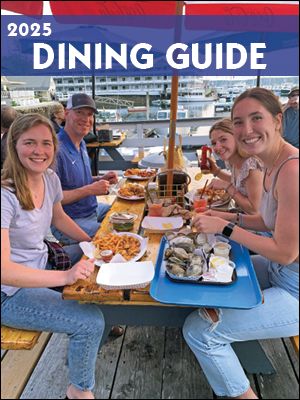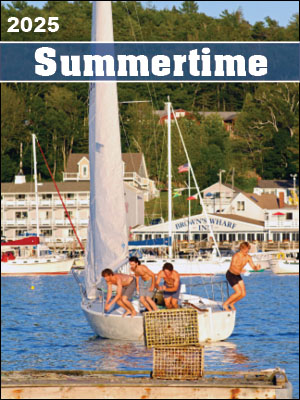Training program launched to better identify harmful algal blooms
The Provasoli-Guillard National Center for Marine Algae and Macrobiota (NCMA) at Bigelow Laboratory for Ocean Sciences is developing a program to train the next generation of scientists and managers in the taxonomy of harmful marine algae, a key step in rebuilding and maintaining expertise critical to managing the impacts of harmful algal blooms in every U.S. coastal region.
An award by the National Oceanic and Atmospheric Administration (NOAA) initiated a three-year project that commenced on Sept. 1, 2015 and will run through August 2018. Bigelow scientists Drs. Mike Lomas and Cynthia Heil are leading the effort.
Many Harmful Algal Bloom (HAB) research and monitoring programs rely heavily on trained experts who can recognize the often subtle, morphological characteristics of HAB species and quantify cell abundances in water samples via microscopy. Cell counts are often used as an early warning of potentially harmful blooms and a trained taxonomist with a light microscope is a critical and cost-effective early warning and monitoring tool.
As the ‘gold standard’ of identification, these specialists are also needed to help researchers verify results from new technologies being developed to facilitate automated HAB cell identification in areas with diverse HABs or with emerging HAB problems.
“The current generation of U.S. HAB taxonomic experts is at or beyond retirement age creating a void in the nation’s ability to identify harmful algal blooms at a time when we are seeing them increase in frequency and duration,” said Quay Dortch, who will be managing the project for the NOAA Monitoring and Event Response for Harmful Algal Blooms (MERHAB) Research Program. “This training program will help us rebuild the expertise needed both now and as technological advances continue in the future.”
As envisioned, the course will provide expert, certified training in taxonomy of harmful marine algal species within U.S. waters. Over the next three years, NCMA scientists and collaborators will develop detailed course material for an annual taxonomy class that will be hosted at Bigelow Laboratory. After the initial three-year project, the program will transition to a self-supporting annual/biannual class hosted by the NCMA.
“We are delighted to be able to offer our expertise to train the next generation of harmful algal bloom experts,” said NCMA Director Mike Lomas. “It is important and critical work so that our nation is better prepared to address this ecological and health issue.”
More information ion the program is available at: http://coastalscience.noaa.gov/projects/detail?key=265.
The Provasoli-Guillard National Center for Marine Algae and Microbiota (NCMA) is a core facility of Bigelow Laboratory for Ocean Sciences. Established in 1981 and formally recognized as a National Resource Center in 1992, NCMA has grown to be one of the world’s largest and most diverse collection of marine phytoplankton. NCMA now maintains in its public collection about 2,800 strains of phytoplankton, macroalgae, and bacteria from around the world for scientific and industrial research.
Bigelow Laboratory for Ocean Sciences, an independent not-for-profit research institution on the coast of Maine, conducts research ranging from microbial oceanography to large-scale ocean processes that affect the global environment. Recognized as a leader in Maine’s emerging innovation economy, the Laboratory’s research, education, and technology transfer programs are spurring significant economic growth in the state.
Event Date
Address
United States



























